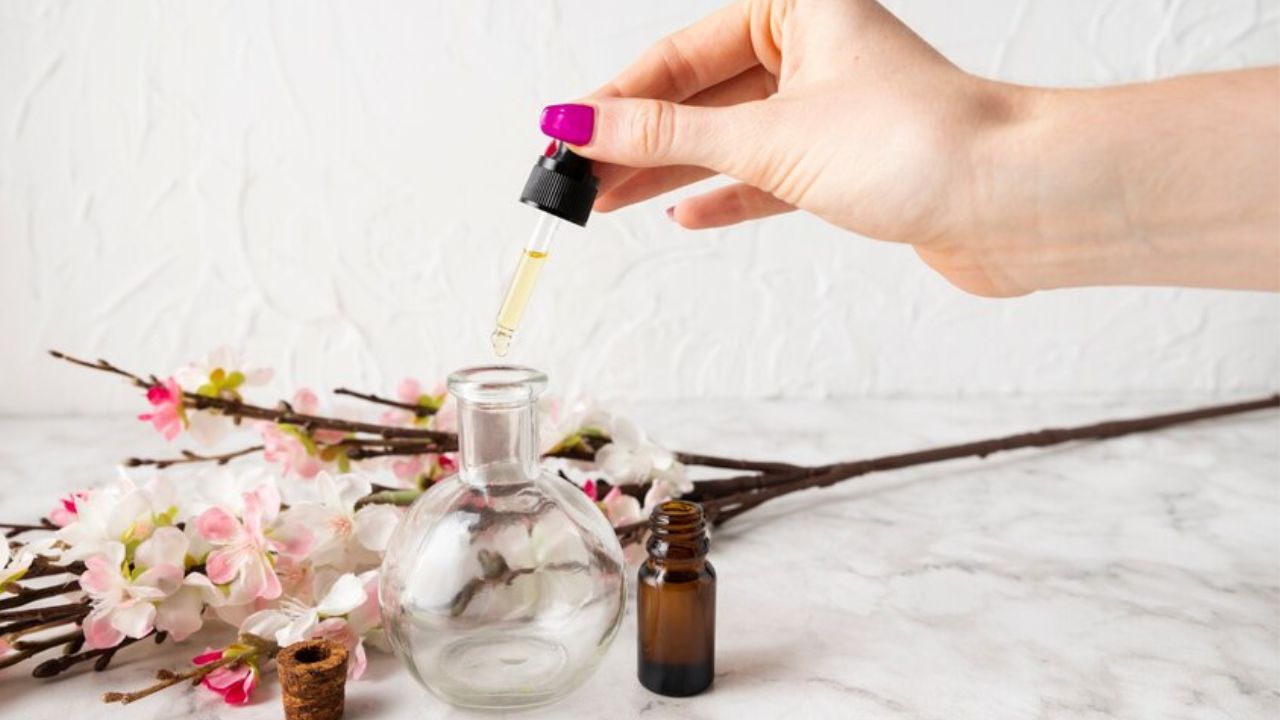Health
Benefits of Laurel Leaf Tea: The Ultimate guide

Laurel leaf tea is often overlooked as a natural remedy, yet it offers numerous potent health benefits. Brewed from bay laurel leaves, this fragrant tea provides powerful healing properties. Laurel leaf tea, long prized for its medicinal qualities in Mediterranean countries, is currently becoming more and more well-known worldwide. Let us explore the amazing advantages that this straightforward brew provides.
Rich in Antioxidants
Antioxidants, which are abundant in laurel leaf tea, are essential for shielding your cells from harm brought on by free radicals. Free radicals, unstable chemicals, contribute to cancer, heart disease, and other chronic illnesses. Regular consumption of Laurel Leaf Tea Benefits to helps counteract these toxic chemicals and supports optimal health for your body.
Supports Digestive Health
Experiencing bloating or experiencing dyspepsia? Laurel leaf tea could be the perfect calming solution for you. Laurel leaves include chemicals that aid with digestion, like cineol and eugenol. These substances facilitate easier digestion, lessen flatulence, and help break down food. After a large meal, this tea is often used by people to soothe their tummies and aid with digestion.
Boosts Immune System
This tea is a great way to support your immune system because of the laurel leaves’ antiviral and antibacterial qualities. Regular consumption may lower your risk of contracting common illnesses like the flu or colds. In addition to being rich in immune-boosting vitamins and minerals, laurel leaves also assist your body fight off infections more successfully.
Anti-inflammatory Properties
Laurel leaf tea can provide some help if you have illnesses like arthritis or persistent inflammation. The anti-inflammatory properties of the essential oils and antioxidants found in the leaves aid to lessen discomfort and swelling. Many individuals use laurel leaf tea as a natural way to treat the symptoms of inflammatory disorders.
Helps Regulate Blood Sugar Levels
Laurel leaf tea can help people with diabetes or prediabetes by adding it to their daily routine. According to studies, several of the chemicals found in laurel leaves may help control blood sugar levels. This suggests that consuming tea made from Laurel leaves may help avoid blood sugar rises, making it a possible natural diabetes treatment.
Improves Heart Health
Improved cardiovascular health has been associated with laurel leaf tea. The tea’s antioxidants and other health-promoting ingredients may lower bad cholesterol, enhance blood flow, and stave off heart disease. This tea has been shown to support heart health, which may lead to a longer, healthier life.
Conclusion
A little-known treasure in the field of herbal treatments is laurel leaf tea. This tea enhances digestion and lowers inflammation, among its many health advantages. It is an easy, all-natural approach to improve your health, and you will love adding its fragrant aroma to your daily routine.
FAQs
Can I drink laurel leaf tea every day?
Yes, drinking laurel leaf tea on a daily basis is generally harmless, but moderation is essential.
Does laurel leaf tea help with weight loss?
Although it might help with digestion, there is not enough data to say that it will significantly help with weight loss.
How do I make laurel leaf tea?
Just steep two to three dried laurel leaves in a ten-minute steep of hot water.
Are there any side effects?
For most individuals, laurel leaf tea is safe, but if you drink too much, you can have headaches or nausea.
Can pregnant women drink laurel leaf tea?
Pregnant women should ideally speak with a healthcare provider before ingesting laurel leaf tea.
Health
The Soothing Science of Aromatherapy: Harnessing Nature’s Fragrant Remedies

The Soothing Science of Aromatherapy is a time-honored method that improves mental, emotional, and physical health. Aromatherapy uses the natural scents of plants to influence our bodies and brains.Examples of this include the relaxing scent of lavender before bed and the energetic aroma of peppermint in the morning. Consequently, many people turn to this holistic therapy for relief from contemporary stress. But what exactly is the mechanism of action behind this approach, and why does it attract so many seeking stress relief?
What is Aromatherapy?
The Soothing Science of Aromatherapy highly concentrated plant extracts called essential oils to provide therapeutic effects. They can diffuse these oils into the air, apply them physically, or inhale them to create a specific atmosphere or mood.Every plant part, including the flowers, leaves, bark, and roots, can provide essential oils, each with a unique set of benefits. Essential oils can have significant impacts on the mind and body, ranging from increasing energy to lowering anxiety.
How Does Aromatherapy Work?
The skin’s ability to absorb essential oils contributes to aromatherapy’s effectiveness. Applying diluted versions of oils like eucalyptus or tea tree can help with bodily problems like respiratory disorders or tense muscles. The skin absorbs their ingredients and carries them into the bloodstream, providing benefits beyond a pleasing aroma.
Key Benefits of Aromatherapy
Numerous advantages of aromatherapy exist for both physical and mental well-being:
Reduces Stress and Anxiety
Essential oils like rose, chamomile, and lavender are well known for their relaxing properties. Diffusing these oils around your house or place of business can help you relax naturally by lowering tension and anxiety.
Boosts Energy Levels
Improves Sleep Quality
Essential oils like lavender, sandalwood, and frankincense can help create a calm environment that encourages deep, restful sleep if insomnia is your daily battle. Before going to bed, a few drops in a diffuser can have a significant impact.
Relieves Physical Pain
Anti-inflammatory qualities found in essential oils like eucalyptus and peppermint help relieve headaches, tight muscles, and even arthritis pain. These oils are frequently used by massage therapists to augment the therapeutic benefits of a massage.
How to Incorporate Aromatherapy Into Your Life
Aromatherapy can be incorporated into your everyday routine in a number of ways:
Diffusion: A diffuser for essential oils can be used to fill a room with aromas. This is the ideal way to infuse energy or create a peaceful environment while at work.
Inhalation: You can instantly improve your mood or reduce tension by just taking a deep breath from the bottle or dabbing some oil onto a piece of paper.
Topical Application: People can apply essential oils topically to the skin after diluting them in a carrier oil, such as coconut or jojoba, to ease physical discomfort or promote skincare.
Conclusion
Using aromatherapy is an easy and natural approach to enhance your general health by using the healing properties of plants. Whether you are looking for more energy, better sleep, or stress reduction, essential oils can provide a customized answer. Aromatherapy has many uses and calming effects, making it a must-try for anybody looking for natural health improvements.
FAQs
What is aromatherapy?
In aromatherapy, a holistic therapeutic modality, people use essential oils derived from plants through topical application or inhalation to enhance mental, emotional, and physical well-being.
How does aromatherapy help with stress?
Essential oils that influence the limbic system of the brain, which controls emotions, such as lavender and chamomile, offer relaxing qualities that help lower tension and anxiety.
Can aromatherapy improve sleep?
Yes, people commonly use oils like lavender and sandalwood to encourage relaxation, making it easier to fall asleep and achieve deeper sleep.
Is aromatherapy safe for everyone?
Although aromatherapy is generally harmless, those who have sensitive skin, allergies, or asthma should exercise caution. Before using essential oils topically, always dilute them and conduct a patch test.
How can I use essential oils at home?
Health
The Importance of a Gut Health Check: Why You Shouldn’t Ignore Your Gut

The Importance of a Gut Health Check influences your general health, but how often do you consider it? To ensure your digestive system functions properly, get a gut health check. Your gut plays a crucial role in more than just digesting food; it also affects your immune system and mental health. So, how can you listen to your intuition, and why is it important?
What is Gut Health?
Gut health refers to the equilibrium and functionality of the microbes residing in your digestive system. The bacteria commonly referred to as gut flora or gut microbiome are essential for proper digestion, absorption of nutrients, and immune system function. A healthy gut may prevent infections, control stress, and elevate your mood. However, when things go wrong, they can cause a variety of problems, including chronic diseases, inflammation, and bloating.
Signs Your Gut Health Might Be Off
Digestive Issues: Constipation, diarrhea, bloating, or gas may be signs of an unbalanced gut.
Frequent Illness: A weak stomach may be the cause of recurring colds or other diseases.
Mood Swings and Anxiety: A person’s mental health can be impacted by their gut health, as there is a strong correlation between the two.
Food Intolerances: An unhealthy gut may be the cause of discomfort while eating particular foods.
Skin Problems: Unbalances in the stomach can be linked to conditions like eczema and acne.
How to Perform a Gut Health Check
Evaluate Your Diet: Your gut may suffer from a diet heavy in processed foods, sweets, and poor in fiber. Following a meal, if you experience bloating or pain, your gut may not be working properly.
Track Your Digestive Patterns: Consider how frequently you have diarrhea, constipation, or irregular bowel movements. These may serve as important markers for gut health.
Monitor Your Energy Levels: Are you constantly tired? You may feel exhausted if you are unable to absorb vital nutrients due to poor gut health.
Use At-Home Testing Kits: A number of gut microbiome testing kits are now on the market that can tell you how healthy your gut is. These tools detect the bacteria in your stomach by analyzing your poo and offer helpful advice.
Ways to Improve Your Gut Health
Increase Fiber Intake: Whole grains, fruits, and vegetables are high in fiber and nourish the good bacteria in your stomach.
Eat Fermented Foods: Probiotics included in foods like yogurt, kimchi, and sauerkraut aid in the restoration of gut flora.
Stay Hydrated: Water consumption is crucial for digestive processes and gut lining health.
Manage Stress: Gut health can be adversely affected by ongoing stress. Deep breathing, meditation, and consistent exercise are among the techniques that help improve digestive and mental health.
Conclusion
Maintaining your general wellbeing as well as the health of your digestive system requires The Importance of a Gut Health Check Effective strategies to maintain gut health include changing your diet, listening to your body’s signals, and perhaps seeking medical advice. Recall that you are only as healthy as your stomach is.
FAQs
What are the signs of poor gut health?
Bloating, gas, diarrhea, constipation, recurrent infections, and even mood changes are common symptoms.
How can I improve my gut health?
Eating more fermented and fiber-rich foods, drinking enough of water, and controlling your stress levels can all help to enhance gut health.
What foods are bad for gut health?
Foods high in sugar, processed foods, and poor in fiber can all have a detrimental effect on gut health.
Can poor gut health affect my mental well-being?
Indeed, there is evidence linking gut health to mood disorders such as depression, anxiety, and others.
Is a gut health check necessary?
Yes, routinely monitoring your gut health can aid in preventing digestive problems and promoting general wellbeing.
Health
Hiking for Fitness: A Fun Path to a Healthier You

One of the best and most pleasurable ways to get fitter is to go hiking. It is an exciting, fulfilling, and effective workout that strengthens and tones your body and mind—it is not simply about going up a mountain. Hiking offers something for everyone, whether you are an outdoor lover or just searching for a different approach to get in shape. This post will discuss the benefits of hiking for improving your fitness and the reasons it ought to be a regular component of your workout regimen.
Why Hiking is a Great Workout
A special combination of strength, endurance, and aerobic training is provided by hiking. It is a full-body exercise program that helps you burn calories in a fun, low-impact setting while strengthening your legs and cardiovascular system. Hiking brings excitement and variation to regular gym workouts, keeping your training regimen interesting.
Mental Benefits of Hiking
Hiking benefits mental health in addition to physical health. Being in nature promotes calmness and mental clarity while lowering stress, anxiety, and depression. Hiking keeps you motivated and gives you a greater sense of connection to the world around you, whether it is from the fresh air, the breathtaking landscape, or the sense of accomplishment.
How Hiking Builds Endurance
Enhancing endurance is one of hiking’s main fitness advantages. Over time, the varied terrain helps to improve resilience and stamina by posing different demands to your body. Hiking increases your overall fitness levels since it allows you to take on longer and more strenuous hikes.
Burning Calories and Weight Loss
One of the best ways to burn calories is to go hiking. 400 to 600 calories can be burned on a moderate hike per hour, depending on the terrain and level of difficulty. This makes it an excellent choice for anyone who wants to enjoy the great outdoors and lose weight.
Conclusion
Hiking is a great method to increase your physical and mental fitness in addition to being an enjoyable outdoor exercise. Hiking provides a well-rounded, easy-to-stick-with workout that combines cardio, strength training, and stress release. Thus, put on your hiking boots, locate a route, and begin your path to improved health right now!
FAQs
Is hiking suitable for beginners?
Indeed! Every fitness level of hiker can find a suitable track, and novices can begin with shorter, more manageable treks.
How often should I hike for fitness?
A fantastic method to increase fitness is to go hiking once or twice a week. As you gain strength, gradually up the frequency and intensity.
Do I need special equipment for hiking?
Comfortable attire and well-fitting hiking shoes are indispensable. Additionally useful are a small backpack and a water bottle.
Can hiking help with mental health?
Of course! It is commonly recognized that hiking in the great outdoors lowers stress, anxiety, and depression while also enhancing mental health.
Is hiking a good workout for weight loss?
Indeed, hiking is a terrific workout for anyone trying to lose weight because it burns a lot of calories.
-

 Celebrity12 months ago
Celebrity12 months agoJulia Rejean Moorhead: A Trailblazer in Her Field
-

 News12 months ago
News12 months agoThe Ever-Evolving World of News:Global Events Unfolding Today
-

 INFORMATION12 months ago
INFORMATION12 months agoUnderstanding Information: Its Role and Impact in Our Lives
-

 Sports12 months ago
Sports12 months agoGonzaga Basketball: The Rise of a College Hoops Powerhouse
-

 Sports12 months ago
Sports12 months agoThe Incredible Benefits of Sports: Boost Your Life on All Fronts
-

 Business12 months ago
Business12 months agoRogue Trader Rotate Grand Strategist:The Dynamic World of Trading
-

 Technology9 months ago
Technology9 months agoFascinating Facts About Astronauts:The Ultimate Guide
-

 Health12 months ago
Health12 months agoThe Ultimate Guide to Health: Tips and Strategies for a Healthier
